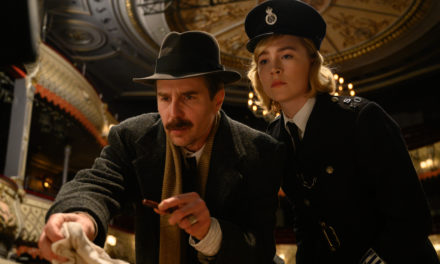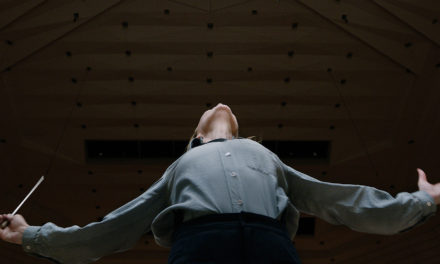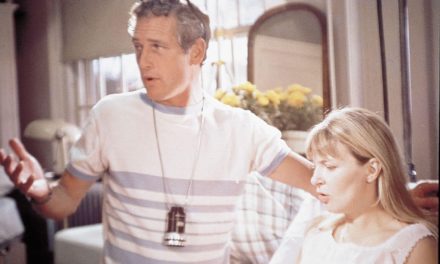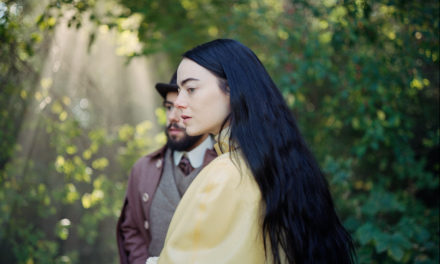Sometimes, rarely but sometimes, I will be reminded why film has been a centre point of my life since infancy. I perhaps take it for granted and when you watch films obsessively you begin chasing the dragon of the sublime. It rarely arrives but then it does, sometimes.
That was certainly the case after the credits rolled, as did a few tears, at the end of Mia Hansen-Løve’s newest film ‘One Fine Morning’. The French filmmaker has made something of a name for herself as the new indie darling of European cinema and after watching her latest offering it feels as though she’s only getting started. On top of this she also has one of the coolest name ever, the world really is on a plate for her. There is a well thought out style and rhythm to her filmmaking and you really sense a strong ability to communicate with actors. These abilities work in tandem to create mechanically immaculate yet deeply human art. It’s as if Godard has come back but now doesn’t hate women.

‘One Fine Morning’ centres Sandra, a Parisian mother and translator, played by Léa Seydoux, who finds love with a married man after the death of her husband. As if thats not enough emotional entanglement to deal with on top of this she is also having to care for her father, a once highly esteemed academic, as he slow deteriorates at the hands of dementia. Though the plot on paper sounds melodramatic to an almost farcical degree the film somehow delicately treads around its heft weightlessly, conjuring its emotional punches as if from thin air. It has been a couple weeks since seeing the film and theres at least four specific moments that often drift into my mind evoking a swell of feeling within me and momentarily shattering my otherwise cynical facade.
Perhaps the reason for the evocative nature of the film is due to the specificity to the narrative as Hansen-Løve has said that much of the story is inspired by events in her own life. Outside of the larger narrative there is also a pin-pointedness to small moments that conjure a deeper truth, whether it be her father-in-law using an app to check planes flightpaths or her lovers job as an astronomer observing the dust of asteroids. My favourite of these details is a moment in which the adults set up Christmas presents as the children wait in the other room. Almost the whole film plays out in these sort of small specified moments that add up to something wholly revelatory. This structure allows for feelings to fully register and play out from the intense to the mundane, everything is captured. Some of the best moments are that of Seydoux commuting to and from situations. The editing and pacing give a cathartic release as much for us as for the character in order to process the stress of her current situation.

The film also acts as a perfect piece for Seydoux to show off her acting capabilities that were never really in question. It’s her performance that carries you through these traumatic moments and you feel deeply grateful to her for doing so. Its interesting the extent to which the camera obsesses and sexualises her however without ever taking agency away from her in a way that I feel she has never been afforded before. The entire representation of sex and intimacy in the film feels deeply rooted in a human reality opposed to a gendered expectation or assumption on the part of the filmmaker. These moments acts to reveal a complicated, and very French, sense of sexuality and self. Also while I’m on the topic of Lea Seydoux can I just say though yes she is amazing, especially highlighted in this, and perhaps one of the most beautiful human beings ever I think its important to note that everyones sudden interest in nepotism should perhaps aim its sights at her like her dad is a billionaire who makes drones, not to take anything away from her I’m just saying its quite funny.
“the film somehow delicately treads around its heft weightlessly, conjuring its emotional punches as if from thin air.”
Though I do have some reservations with the film, the ending in particular does go a bit too far into the sentimental that it had so skilfully avoided for the past 113 minutes. And speaking of its runtime, it is a bit too long once we reach the third act it feels as though the emotional ringer the picture has put you through is perhaps reaching its limits. However, I cannot stress the depths the film is able to reach and how purely singular, intricate and beautiful the vision Hansen-Løve has sculpted. A vision that feels completely at odds with the current cinematic landscape, even within indie filmmaking scene that too seems to have fallen victim to a rather ironic obsession with bombast and emotional spectacle.





